| Wilkes Limited
The business was founded in 1840, and in 1897 took over
Joseph Simpson & Son, bolt, nut, fencing and iron gate
manufacturers based at Grand Junction Works. The firm
was earlier known as Simpson and Wood.
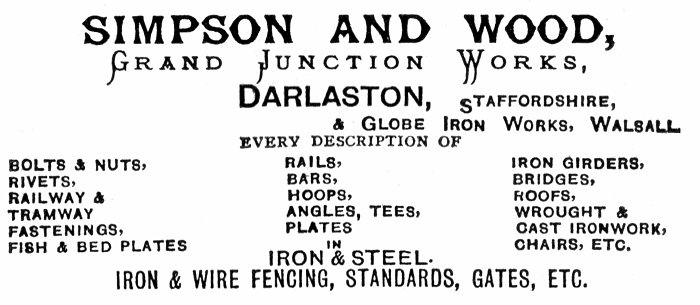
An advert from 1844.
|
In 1886 Simpson and
Wood were the sole contractors for the whole
of the ironwork in the New Exchange Station
in Liverpool, followed by the exhibition
hall at the International Exhibition of
Navigation, Commerce and Industry that was
held in Liverpool. It was officially opened
by Queen Victoria on 11th May, 1886.
|
From
The Engineer, 11th
June, 1886. Courtesy
of Peter J. Carter:
The architect of the
Exhibition is Mr.
Henry Sumners,
F.R.I.B.A., of
Liverpool, and he
prepared several
designs for a wooden
erection of a
somewhat similar
character to those
adopted at South
Kensington, but the
Committee were
anxious to have
larger spans than
could be
advantageously
constructed in this
manner, and to
obtain the desired
widths iron
construction would
have to be resorted
to; while these
designs were under
consideration,
Messrs. Simpson and
Wood, of Darlaston,
who had purchased
the principal
portion of the
building used for
the Antwerp
Exhibition last
year, offered to
erect that building
at Liverpool.
Eventually it was
decided to accept
their offer, and a
contract was entered
into with Messrs.
Simpson and Wood to
erect the building
at Liverpool, and to
leave it there for
six months, and then
to remove it, the
Council having the
option to purchase
the building at the
expiration of that
period. The plan of
the building has
been entirely
re-arranged by Mr.
Sumners to suit the
nature of the site
and the requirements
of the Exhibition,
and a large sum of
money had to be
spent in building
brick walls to carry
the superstructure. |
|
|
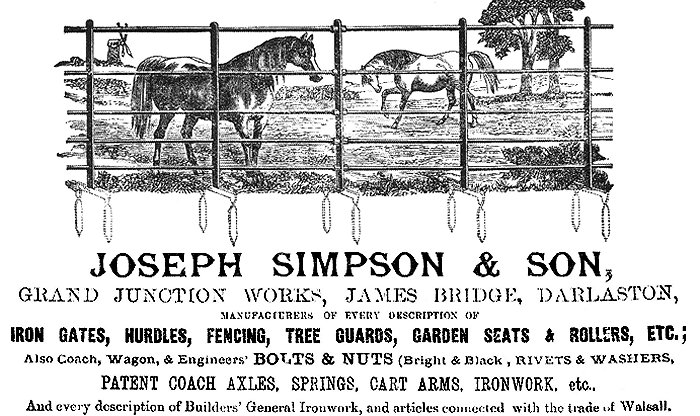
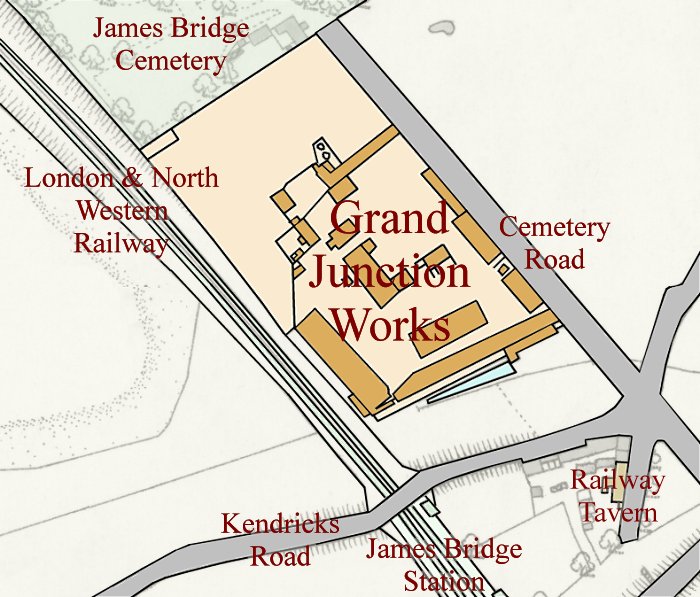
Joseph Simpson & Son's Grand
Junction Works in 1884.
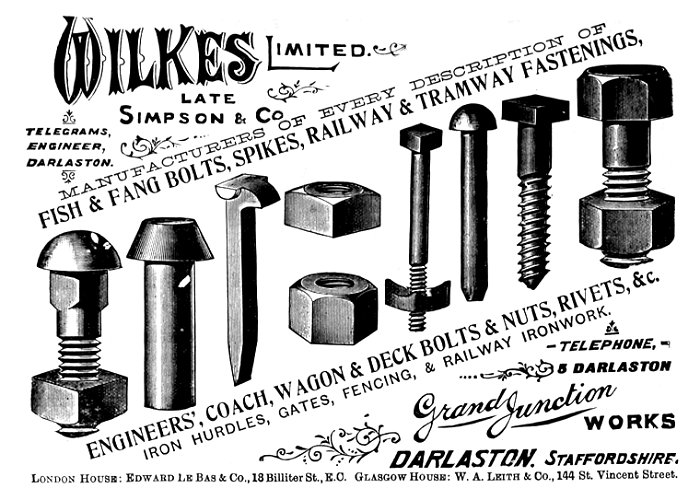
In 1890 Wilkes became a limited company, and by 1914
employed 350 people.

From Kelly's 1896 Staffordshire
Directory.
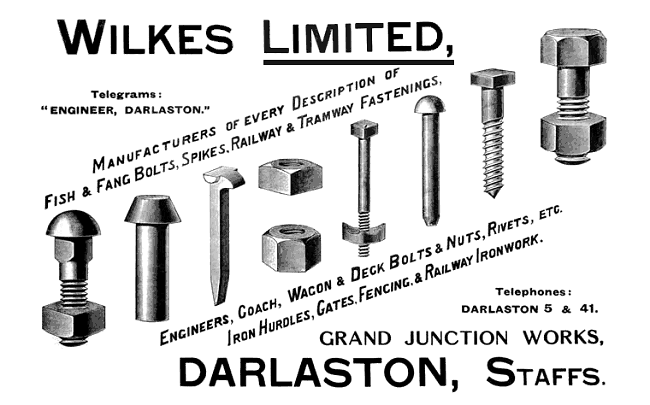
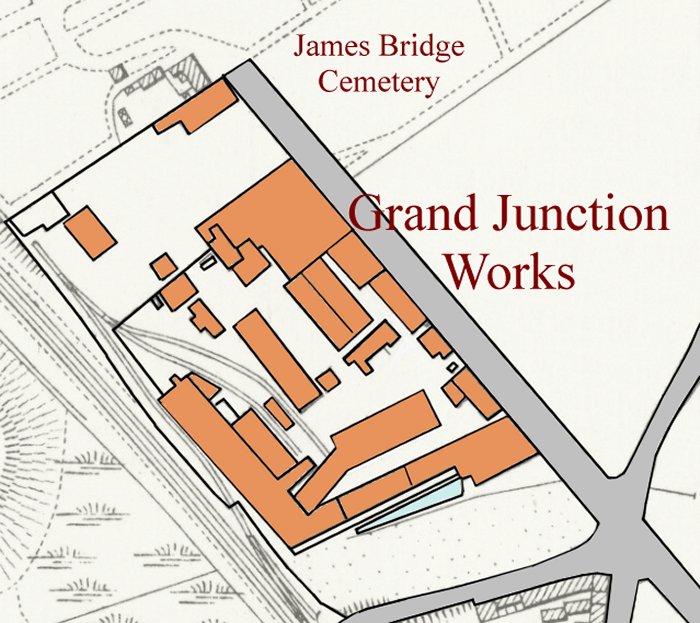
The factory in 1901.
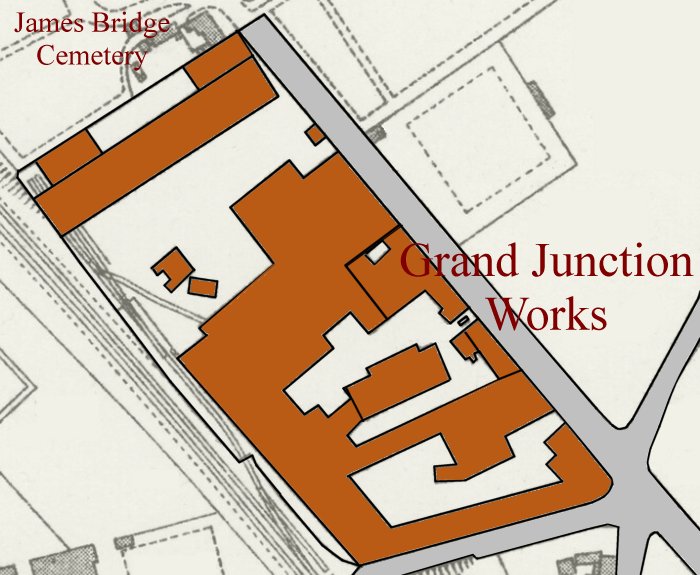
Grand Junction Works in 1938.
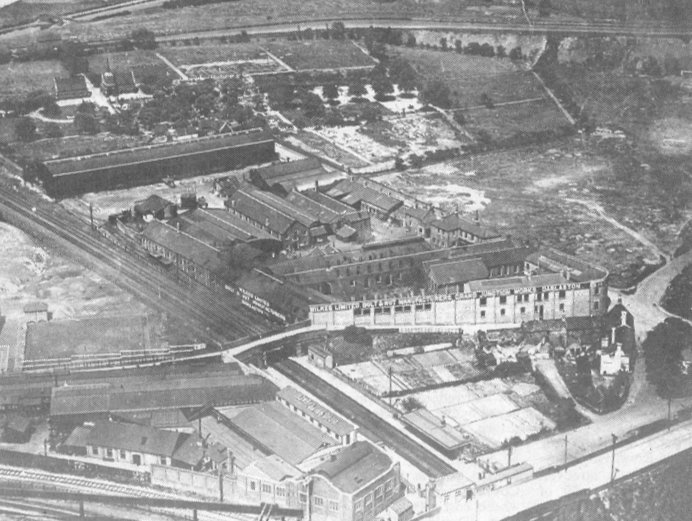
An aerial view of the factory.
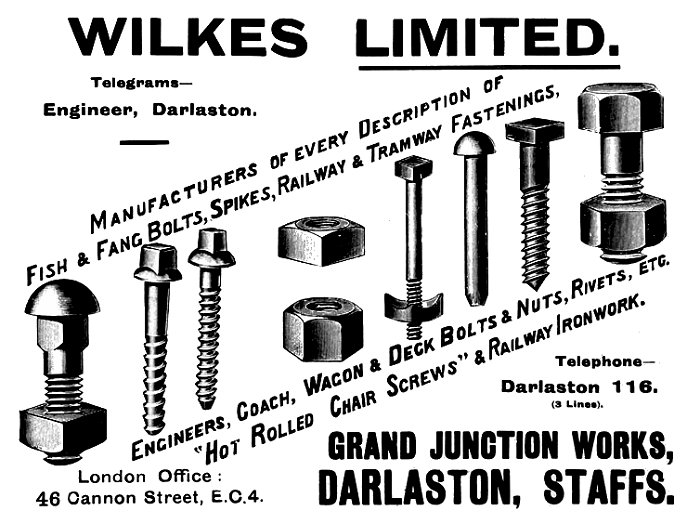
An advert from 1930.
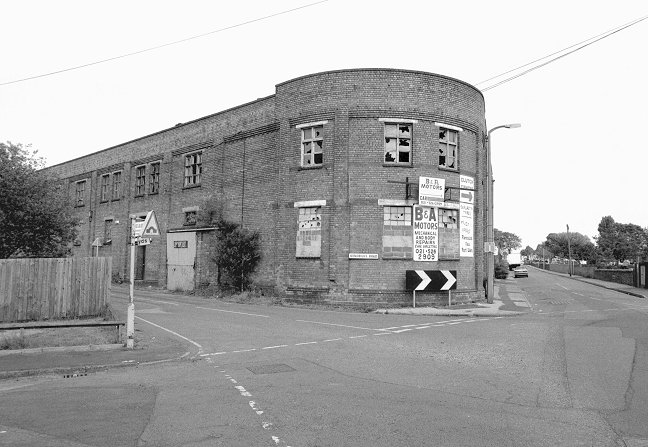
The old Darlaston Nut and Bolt
works, known locally as "Bogie Wilkes". The factory stood on the corner
of Cemetery Road and Kendricks Road. This part of the
factory was a later extension, built in the
early part of the twentieth century. |
|
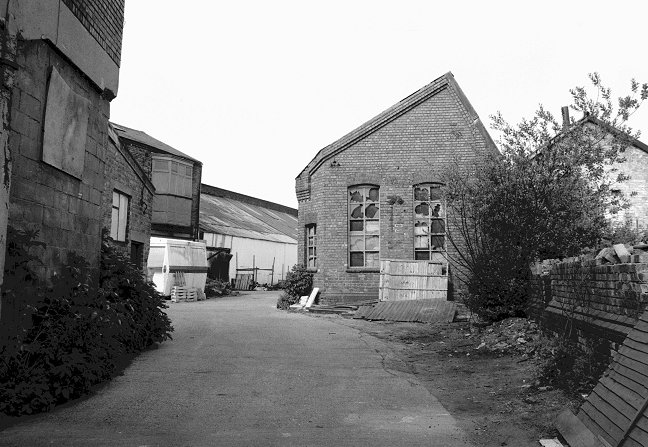
A view of the rear of
Darlaston Nuts and Bolts. On the left is the newer
extension, whilst straight ahead is one of
the original buildings that are marked in
the 1884 map above. The factory was demolished in
2006. |
|
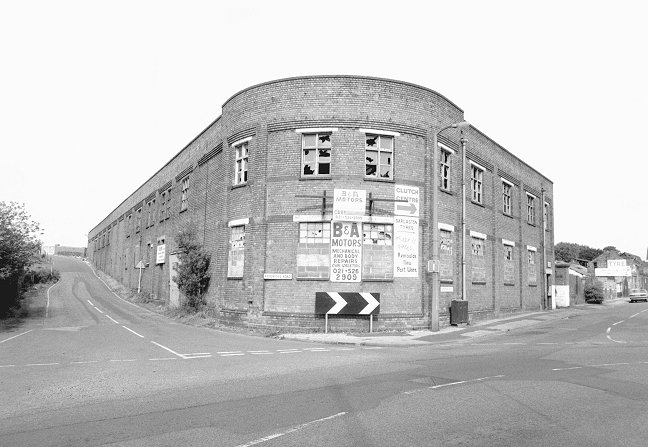
Another view of the
factory, looking up Kendricks Road from
Cemetery Road. |
|
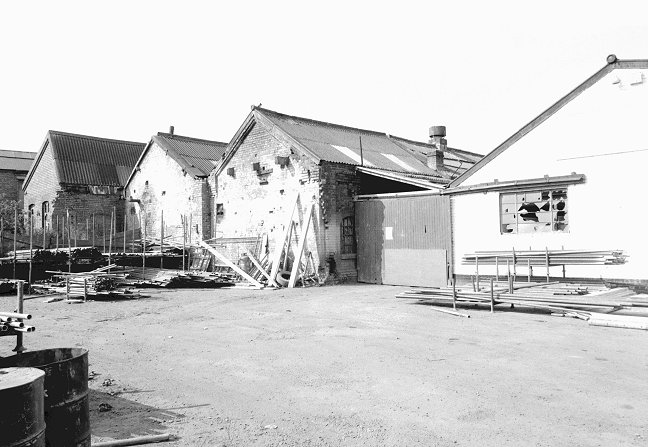
The main factory yard
with one of the original buildings on the
left, and several of the later additions on
the right. |
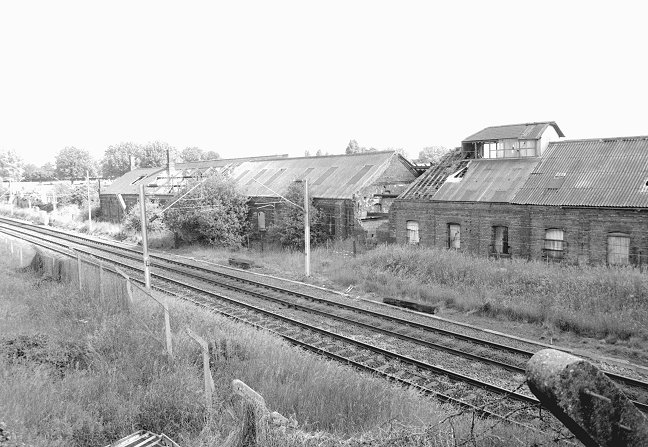
A view of Darlaston Nuts and
Bolts from the railway bridge in Kendricks Road. The
factory, originally called the Grand
Junction Works was named after the railway
(originally the Grand Junction Railway) and
built
there because of it. The building on the right can be
seen on the 1884 map, whereas the ones on
the left are much later. |
|